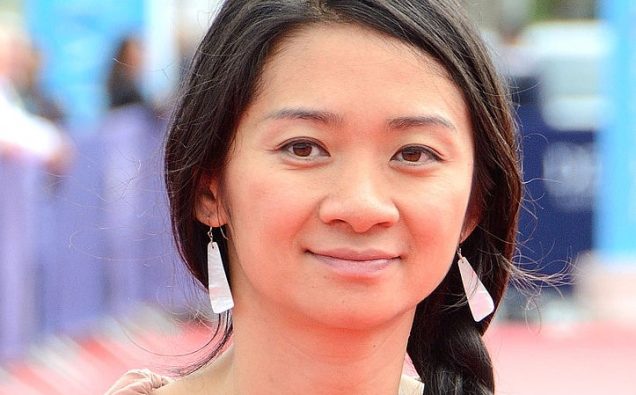
Chloé Zhao, Director of film Nomadland Image Credit: Vegafi / Wikimedia Commons
The other day, I saw a revealing movie-cum-documentary on a less-spotlighted facet of American life, called “Nomadland,” which won the best picture at the April 25 Oscars Academy Awards ceremony. Directed by Chloé Zhao, the film is based on the 2017 non-fiction book “Nomadland: Surviving America in the Twenty-First Century” written by Jessica Bruder.
The film depicts the purposelessness running through American life wherein lost are jobs, homes, and the companionship of family and friends.
Unmoored from the ties that bind, some seek solace through gypsy-like existence through transient living, punctuated with frequent goodbyes to whom they meet and connect with down the road. It bespeaks of houselessness and homelessness and aimless cruising, marked by grappling with grief and loneliness, made all the more acute by the fleeting connections made.
It also shows that treasured memories are more powerful than mere material trappings. And those embedded in the heart never depart. Enwrapped within is an ode to the independent streak of the human spirit to defy conventional assumptions and expectations. Amidst material, comforts coexist desolation, isolation, and aloneness.
The pandemic has brought to the forefront some of the issues that roil America.
#Oscars Moment: Chloé Zhao accepts the Oscar for Best Directing for @nomadlandfilm. pic.twitter.com/1W1zPSxEWS
— The Academy (@TheAcademy) April 26, 2021
There is a sharp contrast between those who have a lot and those who have little and, sometimes, those who have a lot end up mired in emptiness and fearful of losing what they have and craving for what they do not have.
The dervish of the Subcontinent had it figured – by combining lofty thinking with simple living. They were searchers who found solace and salvation through service, sacrifice, and selflessness.
“Nomadland” highlights that those who have the least have the breadth of heart to care and share in a world where much wants more. In bleakness, there were flickers of grace, wherein Shakespearean sonnets were recited and notes exchanged on the philosophy of living.
It’s a saga of dislocation. For mainstream audiences, it unlocks a largely unnoticed slice of Americana, which takes a different interpretation of the American Dream. It exposes the lack of a safety net – which particularly hits elderly care – and the fraying of family ties. In doing so, it does raise uncomfortable questions on the trajectory of transient modern life. For the elderly many, harrowing is the fear of dying alone and lying undiscovered. This was the fate that befell Hollywood superstar of yesteryears, William Holden.
Those conversant with visits to the emergency room of hospitals have observed how left alone and, in effect, abandoned are the elderly. There, one night I saw a son berating his 90+-year-old mother for disturbing his evening when he was summoned by emergency room hospital staff. He just didn’t want to be bothered.
During a freezing Washington winter, I witnessed several tents perched on a hill at the end of the Whitehurst Freeway.
The movie was notable in not relying on the titillating crutches of sex, gore, and profanity, which characterizes 21st-century cinema.
The shallowness of transactional ties erodes deeper affections that cement human connections. In the process, it entrenches a miserly mindset about which Hazrat Ali had presciently warned 14 centuries ago. The results bear witness to how it has impoverished the quality of life.

















